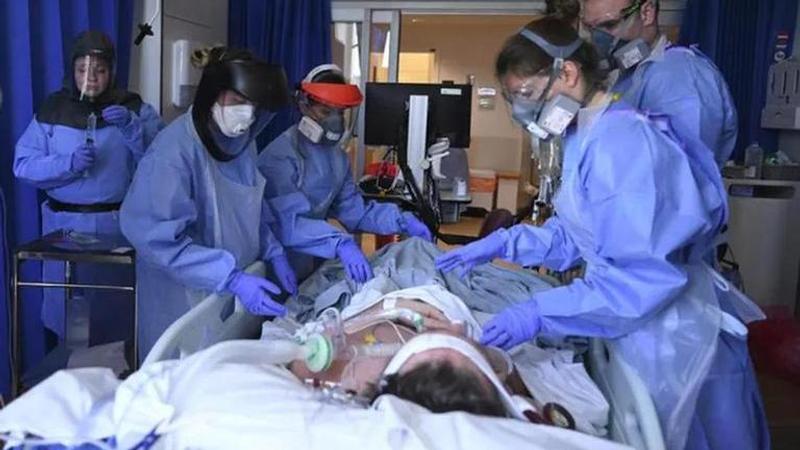Published 15:18 IST, May 14th 2020
Studies suggest coronavirus can infect intestines, kidneys and other organs
The novel coronavirus can infect multiple organs throughout the body including the lungs, pharynx, heart, liver, brain, kidneys, and intestines, said studies.

The novel coronavirus can infect multiple organs throughout the body including the lungs, pharynx, heart, liver, brain, kidneys, and intestines, researchers said in different reports. While SARS-CoV-2 has been classified as a respiratory virus, the detection of viral RNA in faecal specimens suggest that it might cause enteric infection.
According to a report published in Nature Medicine, some COVID-19 patients have suffered gastrointestinal symptoms such as nausea, vomiting and diarrhoea. Jie Zhou and colleagues at the University of Hong Kong demonstrated the active replication of SARS-CoV-2 in human intestinal organoids and isolation of infectious virus from the stool specimen of a patient with diarrheal COVID-19.
“Although not as common as respiratory symptoms, gastrointestinal symptoms have been present in a substantial proportion of patients with COVID-19,” wrote the researchers.
The researchers wrote about a 68-year-old female patient who had a fever, sore throat and productive cough, and later developed diarrhoea after admission to Princess Margaret Hospital. Zhou and colleagues said that they isolated infectious virus from her stool specimen.
“The isolation of infectious virus from the patient’s stool suggests that SARS-CoV-2 enteric infection occurred,” read the report.
'Poorly defined'
A separate report, published in the New England Journal of Medicine, highlighted that the virus preferentially infects cells in the respiratory tract but its direct affinity for organs other than the lungs remains poorly defined. The researchers quantified the viral load in autopsy tissue samples obtained from 22 patients died from COVID-19.
As per the report, 17 patients out of 22 demonstrated more than two coexisting conditions and SARS-CoV-2 seemed to affect kidneys more than any other non-respiratory organs, even in patients without a history of chronic kidney disease.
“The highest levels of SARS-CoV-2 copies per cell were detected in the respiratory tract, and lower levels were detected the kidneys, liver, heart, brain, and blood,” wrote the researchers, highlighting the impact of the deadly virus on several other organs.
(Image credit: AP)
Updated 15:18 IST, May 14th 2020




